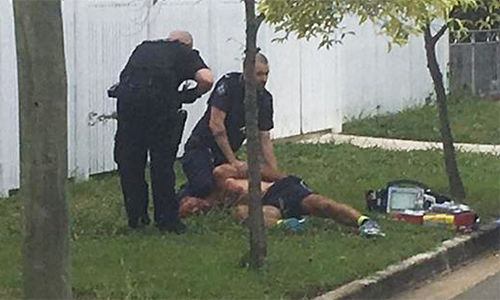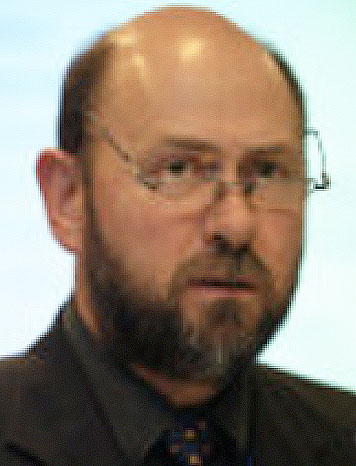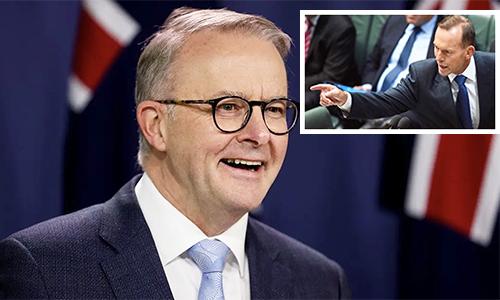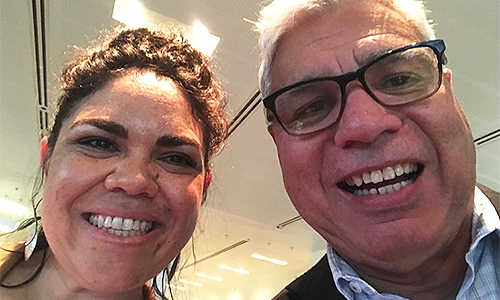
by PAUL COLLITS – A HEALTH crisis close to home (not so close to home, geographically) has found me deep in the tropics for a month or so. Three long days’ drive north.
It is like a foreign country. I don’t know how anyone can live here. In early April, the heat is oppressive. This isn’t even high summer.
- A stronger statement on the current state of the real Australia would be hard to find.
- The beautiful, cashed-up, woke people in Australia’s south-east corner don’t know the half of it.
- Would they care a jot if they did?
When an ICU doctor here told me that Rockhampton – thought by many to have the least bearable climate in Australia – was nothing compared to Townsville, it got my attention.
The five o’clock bubbles need extra chilling here. It has been said that Miami Florida would never have become a high-growth region and the preferred lifestyle destination for millions of migrating “snowbirds” from northern USA and Canada without air-conditioning. Same here.
REVOLUTION
One can only wonder what will become of the residents of these cities come the climate revolution and net-zero fascism.
You dive from the air-conditioned house (or in my case, a caravan park cabin or three-star motel room) to the air-conditioned car, then head off to the air-conditioned mall or the air-conditioned hospital.
In between times, it is hot as hades. So, all your life, you live either in a fridge or a pizza oven, and jump from one to the other. I am not quite sure about the “lifestyle destination”.
No wonder so many people get sick. It took me only a week.
Unplanned life on the road throws up challenges. Each weekend we have had to leave our accommodation for one or two nights only.
The first forced exit was to accommodate Pink fans. Not a bed to be found in Townsville, or Ayr (south) or Charters Towers (west) or Ingham and Cardwell (north).
We found a dog-friendly place at Taylor’s Beach two hours north. So, having been kicked out by Pink, we fell into the arms of Taylor! (Note to dog-owners everywhere – beware the appellation “pet friendly”. Most places don’t actually mean it).
The second forced exist was occasioned by Easter. The third was … a dog show!
On the way to Taylor’s Beach, you pass through a village called Cordelia, just north of Ingham. Coincidentally, a day after we went through it, they captured a crocodile that had been eating chickens and harassing a man mowing his lawn.
He was to be relocated to a croc sanctuary or zoo. The croc, that is, not the harassed mower man.
Herbie wasn’t happy about his removal. Only in North Queensland.
While on the subject of nasty critters, it is one of life’s ironies up here that it is stinking hot all the time and you can’t just jump in the ocean.
Perhaps pool manufacturers and cleaners are paying the Irukandji to keep biting people. (There is a good story about the son of the bloke who originally identified the cause of what was known, back in the day, as “Irukandji Syndrome”. The father found one of the creatures in the water and decided to test his theory by allowing himself to be stung. He then became violently fevered and had the shakes and all sorts of other near fatal symptoms. And he persuaded his then ten-year-old son to join in the experiment. The son is still alive.)
DECISIVELY
The deep north, despite (or, perhaps, because of) being a surprisingly multi-cultural place, voted No decisively in the Voice referendum. Some places hit 80+ per cent.
Yet the region has a heavy and visible Indigenous population, which, to almost a man, woman and child, sports the now (up here) very trendy “indigenous wear”.
This is gaudy, multi-coloured and football-related. And not all who wear them are the colour of Stan Grant. There is a bit of virtue-signalling going on here. I am told it is the fashion statement of the deep north.
There is a strong islander presence. Not surprisingly, given the history of the North Queensland cane farming and the lure of the footy and the wages.
There is a strong, visible Indian community. In many country towns across the wide, brown land, they drive cabs and manage servos. Here, they are priests and doctors and nurses. Often very senior medicos.
Many of the Catholic pastors in the Diocese of Townsville hail from the sub-continent. We, of course, don’t grow our own priests any more.
The Indian nurses tell me that, when they graduate at home, they then go to the Middle East for the tax-free salaries, then to the UK for career advancement, then to Oz for further adventures and challenges. And often homes for their families.
There are a lot of Indian grocery stores here.
Aboriginal and Torres Strait Island flags adorn much of the public sector landscape. I realise they do everywhere these days, but for some reason – perhaps because of the highly visible Indigenous presence in these parts – it creates a very different feel of the apartheid we are growing.
A while back, the geologist Ian Plimer said that Australia could help places like Tuvalu to “solve” their non-problem of sea level rise by bringing back “blackbirding”.
Britannica explains: “… the 19th- and early 20th-century practice of enslaving (often by force and deception) South Pacific islanders on the cotton and sugar plantations of Queensland, Australia (as well as those of the Fiji and Samoan islands). The kidnapped islanders were known collectively as Kanakas (see Kanaka).
Plimer suggests: “Pacific islanders are great rugby players and play in top teams all over the world. If Tuvalu is now concerned about inundation by rising sea levels resulting from global warming, Australia should restart the blackbirding trade, kidnap young athletic Tuvalu teenagers and educate them on Rugby Australia scholarships in the rugby-specialising private schools of Queensland and NSW.
“Tuvalu is a deeply Christian country and blackbirded teenagers would continue to receive a Christian education, immigration would again have a Christian focus and the woefully poor feedstock for the Super Rugby and Wallabies would be improved. Australia might even regain its position as one of the top rugby nations of the world.
“This scheme would start to depopulate Tuvalu well before it is inundated by a hypothetical sea level rise, successful Super Rugby and Wallabies players from Tuvalu would send money back to their families and the Australian taxpayer would be spared from providing hundreds of millions of dollars to assist Tuvalu with a hypothetical sea level rise.”
SLAVERY
Ian reminds one of the powerful dual advantage of colonialism, and, incidentally asks the implied question, “what is slavery?”.
Two of the great contributions to the human race – the miracle of the industrial revolution, and Christianity – were only brought to these parts by colonialism. We could add a third … rugby (in both its forms).
If an Aborigine circa 1787 could have been shown then a video of the Ella brothers in full cry in the mid-1980s, would he have chosen to remain un-footballed and un-colonised?
Not to mention running water, a regular food supply and, for Warren Mundine at least, the blessing (for him) of a “Catholic upbringing”, for which he is forever grateful.
But I digress. Townsville is, though, both an Indigenous and a rugby league city.
Townsville is also a two-class city. On The Strand, a lovely, hip, beachy place down by the (stinger infested) waters, you get the militant walkers, the lycra brigade, the G-string folks, the doggie types, the teens on their electric scooters, and the beautiful people generally.
Completing their early morning work-out on the boulevard with a chai latte and eggs benedict at one of the fashionable eateries that dot The Strand.
Ten miles inland, it is struggle street. At Townsville Mall, you get all sorts in the seemingly middle-class shopping centre. They have an RM Williams and a police beat and very active security officers who seem, on first impressions, to be fully employed, dealing with shop-lifting on a large scale.
Townsville does have a very, very high crime rate.
As recently as December 2023, Sky News reported: “The crime crisis plaguing Townsville has reached the ‘worst it’s ever been’, with 79 cars being stolen and 228 offences committed last week alone – mostly by teenage offenders.
“Specialist police have been flown into Townsville to regain control of the streets.
“As of Tuesday, there had been 20 people arrested, mostly teenagers, with 228 charges being laid including unlawful and dangerous use of motor vehicles. And police are still searching for several high-risk teenage offenders.”
SIEGE
Speaking to Sky News Australia about the crisis on Tuesday, Member for Herbert Phillip Thompson said “Townsville is under siege”.
“We are under siege by youth criminals who are attacking businesses, breaking into people’s homes, and now they’re ramming police cars,” he said.
“They don’t fear law enforcement and they don’t fear the punishment that should follow.”
Not a very nice or safe place, then. A little like Alice Springs, though no one seems to be saying that the young crims here are black (if they are).
If there is a higher tattoo-per-capita performer in Australia than Townsville, I haven’t seen it. In Sydney, you play “spot the Australian”. Up here, it is “spot the cleanskin”.
And in a hot climate, you get to see the saggy-baggy-inked all year round.
The mall, with its fats and tatts, is merely a dress rehearsal for nearby Townsville University Hospital, just a little to the south.
This is where the underclass comes to be sick. The sad, weepingly sad, scene outside the main entrance is a thoroughfare of the lowly, the crippled, the obese, the inked, the dispossessed, shuffling along or being wheeled. And these are just the visitors! You should see the patients.
It would be an absolute crime and a sin to look down on, to disdain, these poor, struggling people. They are the way we Australians live now. Or, at least, many of us.
More “exist” than “live”. The do-gooding bureaucrats who sit in the towers of the southern cities and make policy for disabled Australia should be themselves wheeled out and forced to talk to these people. To witness their “narratives”, their “lived experience”.
One particularly odious – and frequent – scene both outside and inside the hospital is the shuffling along of what are clearly prisoners, chained both at the hands and feet, and always between two sturdy police officers. Getting into a lift with these folks is a tad unnerving.
It just adds to the fetid general ambience of the place. All of these prisoners that I have seen (so far) have been dark skinned.
CARE
A stronger statement on the current state of the real Australia would be hard to find. The beautiful, cashed-up, woke people in Australia’s temperate south-east corner and pristine suburbs don’t know the half of it. Would they care a jot if they did?
Townsville Hospital itself is an impressive place. The ICU staff are first rate, professional, technologically driven, hyper-resourced and clearly well-funded.
When patients and their loved ones need this level of care and support and simple reassurance, this is a blessing of monumental proportions.
And thankfully, the hospital itself works far better than its paid public car park, which seldom functions without dramas.
The parking pay machines often have long queues of frustrated people wondering why their already stressed lives deserve this extra punishment.
Who knows what this ICU was like during the pandemic false scare? How many emergency cases were left stranded by the directives from clueless, evil governments in thrall to a minor virus?
How many surgeries were postponed? One nurse who herself had experienced Influenza A suggested that COVID was “a walk in the park” in comparison.
Townsville deserves such an outstanding medical facility. It is, after all, Australia’s premier northern city – Darwin isn’t – and clearly has both great challenges and great needs in the health area. Monumental needs, as it happens.
Politically, we all know that northern Queenslanders hate Canberra. Well, who doesn’t?
This is Bob Katter country, at least outside the city (his seat is Kennedy). Everyone knows Bob. The city of Townsville itself is represented by the aforementioned Phillip Thompson (this seat is Herbert).
Thompson is ex-army and a member of the Liberal “Right”.
In his maiden speech in 2019 he acknowledged his mother-in-law, his wife and daughter as Aboriginal women and stated that “we must not forget there is still a lot of work to be done in recognising and valuing our First Nations people and their culture”.
As I say, Aboriginal affairs are big here. Interestingly, though, the Yes vote in the seat of Herbert was only 24 per cent. Kennedy was 19 per cent. Leichhardt was 33 per cent.
Speaking of Leichhardt, further north, its member is Warren Entsch, a Liberal wet of the woke variety (oddly in these parts), gay rights campaigner and one-time Turnbull man, who has been there forever. Those three make a strong contrast.
In any event, Labor doesn’t get a look in up this way, at least not at the Commonwealth level. The three State members are all Labor, however, at least for now.
They may or may not be still there, come year’s end. One of these local members claims to be concerned about the crime wave and said he was doing something about it. Well, he would, wouldn’t he?
COFFERS
One other thing. You regularly see billboard signs around here reminding various governments (like those of Albo and the Unspellable Premier) of the contribution of the mining industry to government coffers, and others drawing attention to the disgrace that is the Bruce Highway.
To call this road a goat track would be an insult to goats. The twin messages are pretty clear.
Government services here are garbage. In a place where you really need Centrelink to work, it doesn’t. Neither does the laughable NDIS (National Disability Insurance Scheme).
So, all in all, this is the deep north. The Townsville Council web site proclaims: “Townsville is the perfect place to live, work and play!”
Fair enough. It is, indeed, a lovely place. It just suffers from having the wrong latitude. And as always, with promotional gumph, it only tells part of the story.
Its 300 days of sunshine might be regarded by many as decidedly a mixed blessing. Perhaps the 195,032 people who actually call Townsville home don’t mind. At least in mid-July.
As the sun sets on another balmy day, the denizens of the caravan park in which we find ourselves go about their quiet, evening business. They seem as chilled as the accommodation they enjoy.
Many seem to be permanent, or at least semi-permanent, residents. They appear to have a found a home here, far from the rest of the country thousands of miles away. Far from the madding crowd. Friendly, but contained.
Nirvana? Maybe not, beyond the walled confines of this park. I wonder what the speculator and entrepreneur, Robert Towns, would make of it today.
Us? We are just passing through.PC












